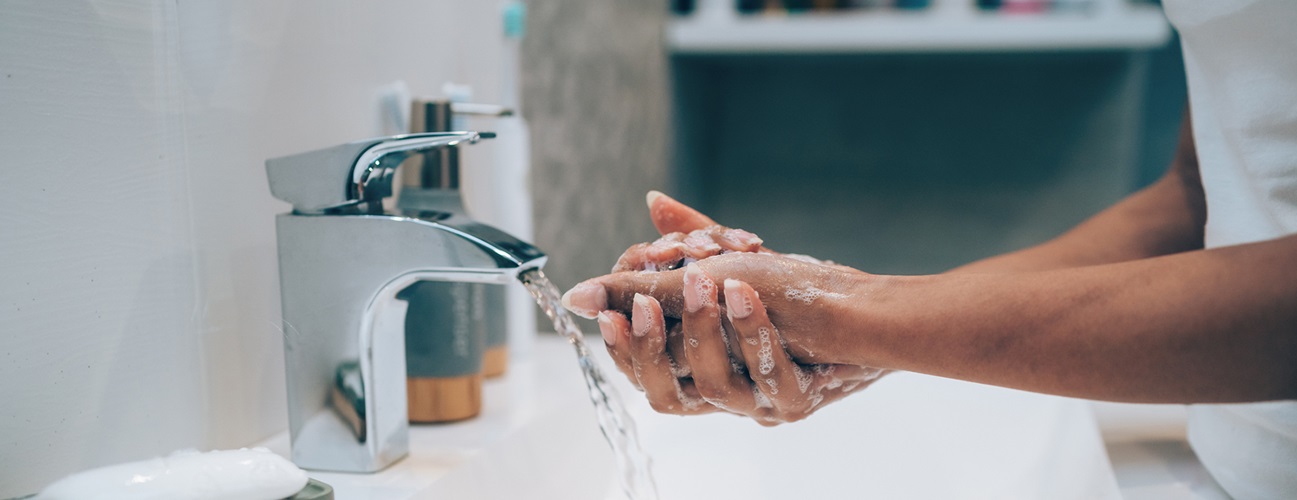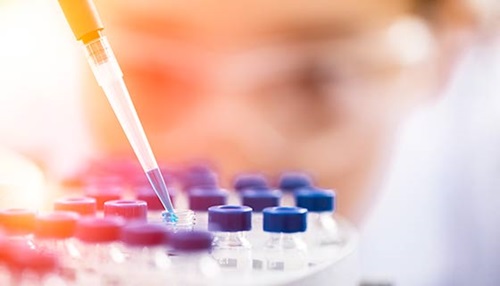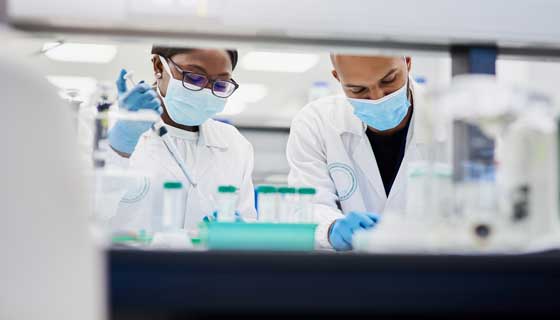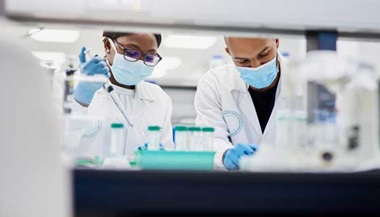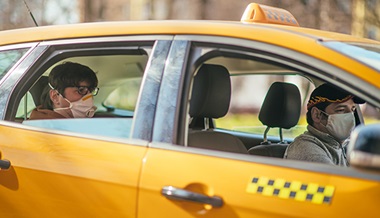After an Organ Transplant: 14 Strategies for Safer Living During the COVID-19 Era
Since the start of the COVID-19 pandemic, life has changed dramatically for everyone. If you are the recipient of an organ transplant, you need to take extra precautions to keep you and your family safe. It is important to practice physical distancing with family members and friends and to follow safe masking protocols and perform good hand hygiene. If you are suffering from depression or severe isolation, please contact your medical team.
Johns Hopkins offers the following 14 strategies to help you stay safe after an organ transplant.
-
Health care: Telemedicine Versus In-Person Clinic Visits
Your provider will sometimes decide that an in-person visit is needed to evaluate your health condition. A physical exam may be needed to understand your current needs. Also, during a telemedicine visit recommended by your transplant team, you and your provider may decide you should go to the office for a better evaluation.
-
Lab (Blood Draws)
For your safety during the COVID-19 era, transplant providers are ordering blood tests much less often than before. Patients who have been stable and who received a transplant more than one year ago should have labs drawn every three months. If new issues develop, patients may need to have labs drawn more often.
During your appointment, it is important to wear a mask and to practice physical distancing and hand-washing. You can call the lab to schedule visits during off-peak hours and to ask about safety measures.
-
Health Care Maintenance and Non-COVID-19 Health Issues (What should be postponed?)
We recommend that you discuss any medical concerns with your transplant team and primary care provider. They can help determine which procedures or exams are needed now to prevent health problems from arising in the future. In-person visits require proper masking, physical distancing and lots of hand washing.
-
Care In The Home
You will still be spending much of your time at home. Frequent cleaning of high touch surfaces, such as door handles and kitchen and bathroom surfaces, is important. This should be done by someone in the home who is not the transplant recipient.
If possible, try to keep windows open in good weather. This will increase the flow of air in and out of your home, and can help get rid of tiny droplets containing the virus.
We advise that you keep the number of visits by workers (for cleaning, extermination, heating/air conditioning or appliance repair, etc.) to the absolute minimum. If such a visit does need to occur, the person entering your home should wear a mask, practice physical distancing and hand hygiene, and limit time spent in the home. The transplant recipient should not be in the area where the person is working.
If anyone in your home develops symptoms of COVID-19, stay in a different room and practice physical distancing until the person is tested. Please notify your medical team immediately if anyone in your home has COVID-19 symptoms or tests positive for the coronavirus that causes COVID-19. The team will give you more instructions.
-
Work: Remote Versus Returning To The Workplace
We advise you to continue working remotely during the reopening phase of the pandemic if your job and supervisor permit. Your human resources department or manager can advise on any documentation needed for accommodation requests at your workplace.
If it is necessary to return to your workplace, it will be important to take measures to reduce potential exposure to the virus. These include:
- Maintain safe distancing (6–10 feet) from others.
- You and co-workers should wear a mask.
- Clean surfaces and practice hand hygiene.
- Do not eat in a common area.
- Use a meeting space that is larger than usually needed for the number of people.
-
Transportation
For transit to and from work or medical appointments, or to conduct other necessary activities, do not use public transportation if you have another way to get there. If you must use public transportation, choose off-peak hours, and select transit option that allow for fewer people sharing a larger space who are distanced from one another.
If ride sharing, both the driver and patient should wear a mask. The patient should:
- sit in the back seat, diagonal to the driver
- put the windows down if weather permits
- use hand sanitizer
- avoid touching their face during transit and when leaving the car
-
Shopping
We advise transplant recipients to avoid in-person shopping as much as possible. It is best if someone else in the household can do the shopping. Also, take advantage of delivery services. If the transplant recipient must go to a grocery store, pharmacy or other essential retail store, they should follow the safety guidelines addressed in this material. All household members should try to shop only at stores that require all customers and staff members to wear a mask — you are most protected when not only you but also others wear a mask.
Many stores have taken additional safety measures, such as creating Plexiglas barriers, using disinfectants, and offering specific hours at the beginning of the day for older and immunocompromised customers.
You can protect yourself by:
- planning your trip in advance to make your time in the store as short as possible
- performing hand hygiene immediately after leaving the store, including after removing gloves if you wore them in the store
- not touching your face
For less essential destinations such as hair, beauty, pedicure and manicure salons, and book, clothing, department or toy stores, transplant recipients are advised to consider the risks.
Do not dine or drink inside restaurants, cafes, bars or coffee shops. Transplant recipients should sit outdoors, physically distancing from others, following CDC guidelines for social gatherings. Everyone, including other guests and the servers, should wear a mask and practice physical distancing. Transplant recipients should avoid situations involving public consumption of alcohol — this may lead to people not following safety practices.
-
Food Safety
Food has not turned out to be a major way in which the COVID-19 virus is transmitted. It is important to follow all food precautions that you usually follow. Do not eat raw or undercooked meat, fish or eggs. Heat all leftovers to steaming hot, wash all fruits and vegetables, and do not eat unpasteurized dairy foods.
Wash your hands after opening food packages or putting away groceries, and do not touch your face while putting away groceries.
-
Returning to School, Attending Camps, and Other Children's Activities
Many transplant recipients have school-age children or grandchildren living in their home, or they may be pediatric transplant recipients. Please refer to the Safer Strategies for Returning to School: K-12 handout.
The American Academy of Pediatrics has published a guide for COVID-19 planning for school reopening. Planning will change as reopening occurs.
Regarding other activities for children who live in the home of an adult transplant recipient, such as attending summer camp and birthday parties, the family and the transplant team should weigh the risks and benefits. If an activity is not essential, it is better that it be attended remotely rather than in-person. We advise our transplant recipients not to attend large family events for a child who is a family member — distancing is difficult to maintain in large gatherings like a birthday party.
-
Social Activities And Recreation
Enjoying life while taking COVID-19 precautions is possible. If you resume activities outside your home, the following steps are most important:
- Wear your mask and carry hand sanitizer at all times.
- Do not go to events or participate in activities if others are not practicing masking or physical distancing.
- Do not go to busy places. Choose events with fewer people.
- Limit the time of interaction and avoid close contact with people outside of your household.
- Avoid peak hours for any recreational activity.
Questions to Answer Before Participating in Recreational Activities, Travel or Work:
- Is it indoors or outdoors? Indoor activities present a higher risk for virus transmission — there is less air circulation than outdoors. If an indoor activity is chosen, it should be in a large, well-ventilated area.
- Will the activity require travel? Nonessential travel is discouraged. Learn more about traveling safe after receiving an organ transplant.
- Are physical distancing protocols in place? Are the other participants likely to follow them? Will people wear masks?
- Are sanitation and cleaning practices followed? High touch areas such as doorknobs, bathroom surfaces, handrails and elevator buttons can become sources of virus transmission. Take disinfectant wipes with you, and practice hand hygiene after touching these surfaces.
- Does the activity require sharing of supplies and equipment? Do not share items with people who are not members of your household. If sharing is necessary, make sure the objects are sanitized between users.
- What services are available? Before visiting any indoor or outdoor recreational facility, call ahead to see if bathrooms or locker rooms are available. It is safer to shower and change at home instead of using shared locker rooms.
- Ask what safety measures are in place BEFORE you participate in an activity with other people.
What social activities are safe?
Physical activities that have distancing built in:
- Walking
- Jogging outdoors
- Sports such as badminton, golf and tennis
Outdoor activities with distancing measures in place:
- Hiking
- Bird watching
- Visiting beaches
Do not play close-contact sports like basketball, football or wrestling.
-
Congregated Activities (Such as Holiday Gatherings, Religious Services, Weddings, Funerals)
In general, transplant recipients are advised not to attend large gatherings. Virtual options are usually available. It is very important for transplant recipients AND their household members not to attend events during which anyone is not wearing a mask.
Traditional fall and winter holiday activities may create a high risk environment for virus transmission because of:
- Colder weather with more people participating in public INDOOR activities.
- Travel
- Holiday meals, because people from more than one household often gather in close spaces without masks
Staying home is the best way to protect yourself and others. If you must travel or if you consider hosting guests, be aware of the risks involved. Please review Centers for Disease Control and Prevention (CDC) guidelines closely before planning holiday activities. If you feel it is truly necessary to attend an event in person, follow the guidelines in the infographic Strategies for Safer Living During the COVID-19 ERA (After an Organ Transplant).
-
Rehabilitation Facilities
Transplant recipients and caregiving members of their families may experience illness and/or injury that weaken them physically. A physical therapist, occupational therapist or speech therapist may recommend to your primary care team that you stay in a rehabilitation facility. Discuss the placement options with your social worker or nurse case manager.
Medicare.gov and the Maryland Department of Health’s Office of Health Care Quality offer information to help with your decisions. Your insurer may limit the facilities they cover. As with everything, PREVENTION regarding COVID-19 is the best strategy.
-
Travel
Travel is an essential part of life. COVID-19 has made it less safe and more complicated for everyone, and especially for people with a compromised immune system such as people who have recently undergone organ transplantation. Learn more strategies you can take to reduce the chances of getting COVID-19 while traveling.
-
Emotional Health
Major life changes and stressful world events, such as COVID-19, affect us physically and emotionally. Remember to take care of your emotional health during this time. Please let us know if we can help. Learn more about COVID-19's impact on mental health.
If you are in crisis and feel that there could be harm to you or a loved one, call 911.

